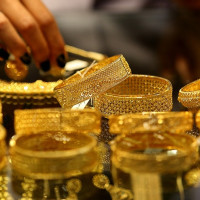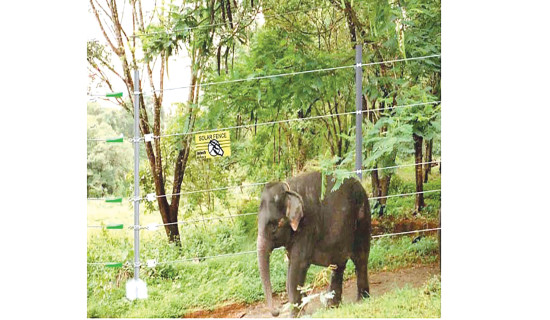- Wednesday, 12 February 2025
Chitwan’s bees taken to Mahottari, farmers hope to produce honey worth Rs. 20 million
By Rabindra Upreti,Bardibas, Apr. 3: Honey farmers group of Khairahani of Chitwan have now moved to Mahottari with bee hives for grazing.
A group of 30 farmers of Chitwan has come to Madhes with 2,000 beehives of mellifera species.
Their goal is to collect honey worth Rs. 20 million from the wild areas of Bardibas this season. After the arrival of honey farmers, the mango garden around Bardibas and Gaushala Municipalities in the northern belt of the district and forest of Sagarnath Forest Development Project are full of beehives.
They have come to Bardibas in the first week of Falgun and are planning to return after collecting honey from the forest here till the month of Baisakh.
They aim to produce around 35,000 to 40,000 kg of honey during this period.
From the forest here, 30 kg of honey is produced at one time from five beehives. Altogether, there are 2000 beehives, according to this calculation, 35,000 to 40,000 kgs of honey will be produced until Baisakh, said honey farmers Suresh Basnet.
There will be honey produced three times over this time, he said.
"Currently, the price of honey is Rs. 500 per kilo in wholesale and Rs. 700 in retail. According to this calculation, honey worth Rs. 20 million can be produced here," Basnet added.
"We have come here in the hope of saving Rs. 250,000 to Rs. 300,000 per person by deducting the expenses while distributing it among the 30 people of the group."
Basnet has also brought 130 beehives of 'mellifera' variety.
Honey harvesting is going on in full swing here since the month of Chaitra. They are more excited after good harvest in the first phase.
They said that the honey collected from forest here is qualitatively and quantitatively greater, so they come from Chitwan.
According to another farmer Krishna Bahadur Basnet, the honey collected from the flowers of eucalyptus here is of high quality.
Honey produced of eucalyptus does not freeze like that of mustard and cherry.
"There is no need to rush to sell honey that does not freeze, as it can be sold after the price rises. Honey produced here has also given us an opportunity," he said, "that's why the number of farmers in the forest area of Mahottari is increasing."
Now Indian companies like Patanjali and Dabur have stopped buying Nepali honey and the number of customers has decreased.
But since the honey collected in eucalyptus forest can be stored for a long time, there is no obligation to sell it cheaply, said Basnet.
















